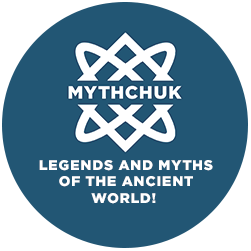Achilles: The Invincible Warrior of the Trojan War – Discover His Hidden Weakness
- Main
- >
- Greek Mythology
- >
- Greek Heroes and Characters
- >
- Achilles
He was glorified by war—but undone by a weakness known to only one mortal… The truth lies at the end.
Achilles—a demigod, son of the sea goddess Thetis and the mortal king Peleus—is hailed as the greatest warrior of the Trojan War. His name became synonymous with greatness, wrath, and fatal vulnerability. The war could not go on without him—but it was also his undoing.
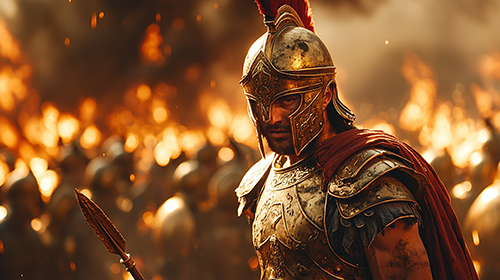 Achilles
AchillesBirth and Prophecy
According to Pseudo-Apollodorus and Hyginus, the marriage of Thetis and Peleus was arranged by the gods themselves. Zeus had once desired Thetis, but when a prophecy warned that her son would surpass his father, the Olympians hastened to wed her to a mortal instead.
Upon Achilles’ birth, Thetis tried to render him immortal. In later sources—like Hyginus—she is said to have held the infant over fire to burn away his mortality, or else dipped him into the river Styx, holding him by the heel. That heel remained vulnerable—giving rise to the famous expression: Achilles’ heel.
 Birth and Prophecy
Birth and ProphecyTraining and Youth
Achilles was raised not only by kings but by the wise centaur Chiron, teacher of heroes. Chiron instructed him in archery, medicine, music, swordsmanship, and hunting. This account appears in Apollonius of Rhodes.
From a young age, Achilles displayed a fierce and unyielding spirit. He was swift, strong, and acknowledged no superior. His fame as an invincible warrior spread even before he stepped onto the battlefield.
When the Trojan War began—his destiny was set into motion.
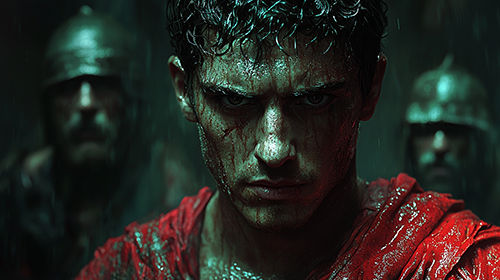 Fate and Disguise
Fate and DisguiseFate and Disguise
Thetis knew her son would die if he went to Troy. She hid him on the island of Scyros, among the daughters of King Lycomedes, dressed as a girl. But Odysseus, as told in Bibliotheca by Apollodorus, exposed him through cunning—offering trinkets and weapons. When Achilles instinctively reached for the sword, his identity was revealed.
Thetis could no longer protect him. Achilles set sail—for death.
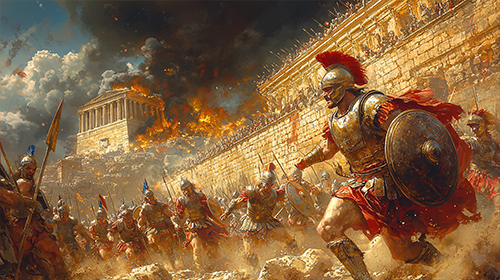 The Trojan War Begins
The Trojan War BeginsThe Trojan War Begins
Achilles arrived with his loyal warriors, the Myrmidons. His ship was captained by Patroclus—friend, comrade, and closest companion.
In Homer’s Iliad, Achilles emerges as irreplaceable—but the real driving force is his wrath, which reshapes the course of the war.
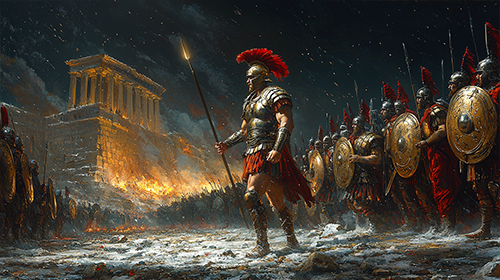 The Wrath of Achilles
The Wrath of AchillesThe Wrath of Achilles
The Iliad begins with Homer invoking the Muse to sing of “the wrath of Achilles, destructive...” The cause: a quarrel with Agamemnon, leader of the Achaeans, who took Briseis, Achilles’ war-prize. Enraged, Achilles withdrew from battle.
The Greeks faltered. Achilles’ absence was devastating.
Only when Patroclus was slain by Hector did Achilles return—not as a hero, but as an avenger, a force of death.
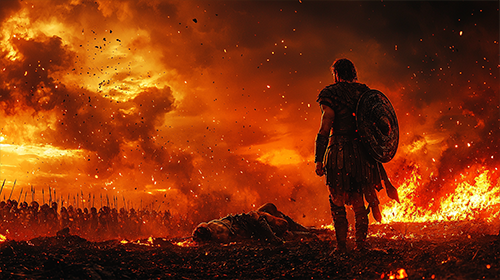 Vengeance and Hector’s Death
Vengeance and Hector’s DeathVengeance and Hector’s Death
Wearing divine armor forged by Hephaestus, Achilles re-entered the war. He knew he was fated to die, but no longer cared.
He hunted down Hector, Patroclus’ killer. Their chase and duel are among the most gripping scenes in The Iliad. Achilles kills Hector, then drags his body around the walls of Troy.
But later, he shows compassion—allowing Priam, Hector’s father, to reclaim the body. This moment is Achilles’ moral redemption—he becomes not just a warrior, but a man.
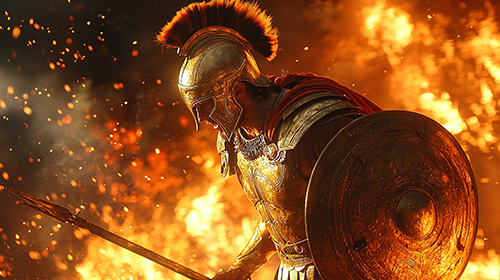 The Death of Achilles
The Death of AchillesThe Death of Achilles
Homer never tells of Achilles’ death—it occurs after The Iliad ends. Later works like the Cypria, Quintus Smyrnaeus, and Apollodorus fill in the story.
Achilles is killed by Paris, guided by Apollo. The arrow strikes his only vulnerable spot—his heel.
His body is recovered by Odysseus and Ajax, and brought back to the Greek camp. Zeus allows his soul to rest on the Isles of the Blessed.
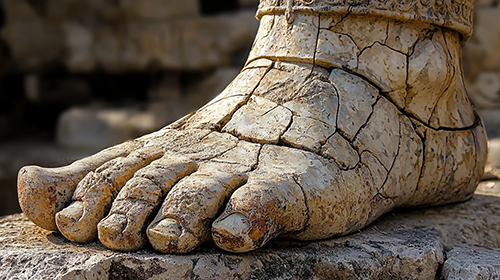 Achilles' Heel
Achilles' HeelAchilles' Heel
Achilles—hero of godlike strength and mortal fate. His name stands for rage, glory, and inevitable downfall. In The Iliad, he is both savior and destroyer, warrior and man. His symbols: Peleus’ spear, Hephaestus’ armor, a horsehair-crested helmet, speed, and relentless fury.
His legacy endures in art, philosophy, and literature. Today, the term Achilles’ heel has become a universal metaphor for hidden vulnerability in the strongest of beings.
